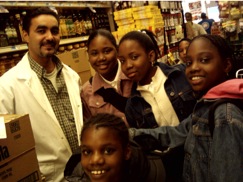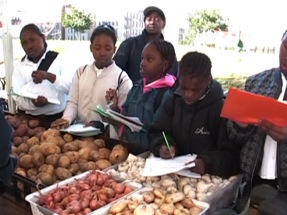
Funds of Knowledge & Discourses: hybrid spaces in support of science learning

Funds of Knowledge & Discourses

Many scholars have stressed the importance of acknowledging the diverse funds of knowledge (Moll, Neff & González, 1992; Hammond, 2001; González & Moll, 2001; González, 2005), for example, home, community, peer funds grounded in students’ membership and experiences in the out-of-school figured worlds that they inhabit. We echo Moje and her colleagues’ (2004) tenet that it is also crucial to examine how these diverse funds of knowledge are mediated through an attendant Discourse, or ways of being, talking, writing, producing that must occur in the right places, right times, and in the right ways. Viewing the different funds and Discourses students have as valuable resources that can be recruited for school science allows not only for a smoother transition between students’ lifeworlds and the science classroom, but more importantly, it also challenges the tight boundaries of school science funds and Discourse to be more fluid and porous to nontraditional student resources. As González (2005) reminds us, “instruction must be linked to students' lives, and the details of effective pedagogy should be linked to local histories and community contexts” (p. 10).
Hybrid Spaces
Moje and her colleagues (2004) referred to three views on third or hybrid space: hybrid space as a supportive scaffold that links traditionally marginalized funds of knowledge and Discourses to academic funds and Discourse; hybrid space as a “navigational space” (Lee, 1993; New London Group, 1996) in gaining competency and expertise to negotiate differing discourse communities; and finally, hybrid space where different funds and Discourses coalesce to destabilize and expand the boundaries of official school Discourse (e.g., Calabrese Barton, 2001; Hammond, 2001; Moje et al., 2001). We draw from all three views of hybrid space with particular emphasis on the third view, in which “everyday resources are integrated with disciplinary learning to construct new texts and new [scientific] literacy practices that merge the different aspects of knowledge and ways of knowing offered in a variety of spaces” (Moje et al, 2004, p. 44).

Acts of creating hybrid spaces, Discourses and identities are always political and of the highest risk for those whose knowledge, Discourse, and identities are positioned as lesser. We know that students draw upon a diversity of resources to learn science, many of which are not traditionally viewed as scientific (Calabrese Barton, 2003; Elmesky, 2001; Lee & Fradd, 1998; Moje, et al, 2001). Third space, or hybridity, therefore, sheds light on science learning because it offers a way of understanding how learning science involves learning to negotiate the multiple texts, Discourses, and knowledges available within a community as it is about learning particular content and processes (Moje et al, 2004).
We are interested in notions of hybridity and third space because we have observed time and time again youth taking up knowledges, resources and identities that often go unsanctioned in school science in novel ways. In so doing, they author new identities-in-practice, drawing from nontraditional funds and Discourses to renegotiate the boundaries of their participation in class in ways that allow them to build their social identities while establishing epistemic authority in the classroom.
Papers
1. Calabrese Barton, A., Rivet, A., Tan, E. & Groome, M. (2006). Urban Girls’ Merging Science Practices: An Overview. A paper presented at the National Association for Research in Science Teaching. San Francisco, CA.
2. Calabrese Barton, A. & Tan, E. (2006). Merging Science Practices and Creating hybrid spaces. A paper presented at the National Association for Research in Science Teaching. San Francisco, CA.
3. Calabrese Barton, A. & Tan, E. (2006). Non-traditional funds of knowledge & Discourses and Hybrid Space. A paper prepared for submission to the Journal of Research in Science Teaching.
